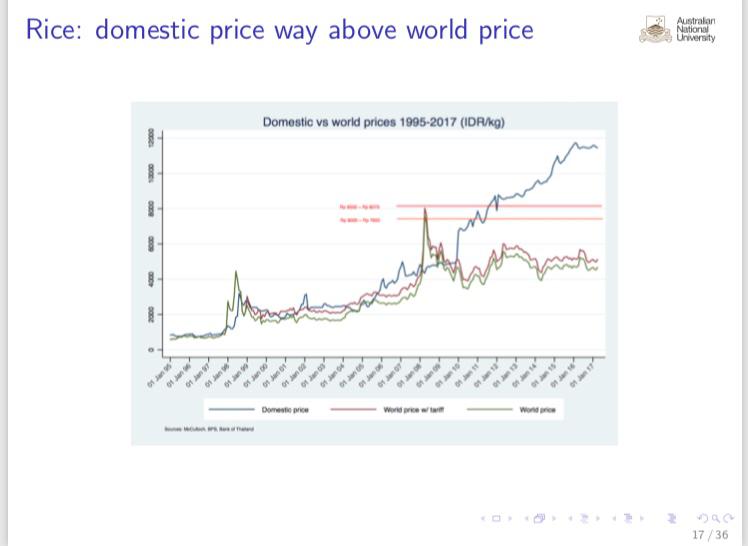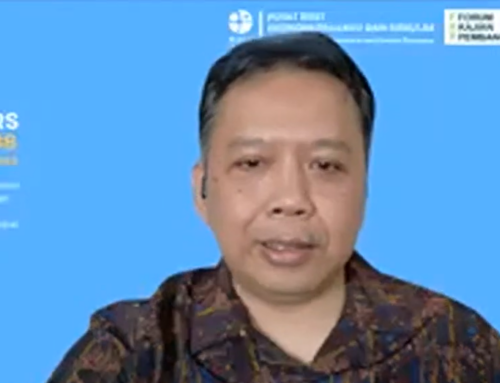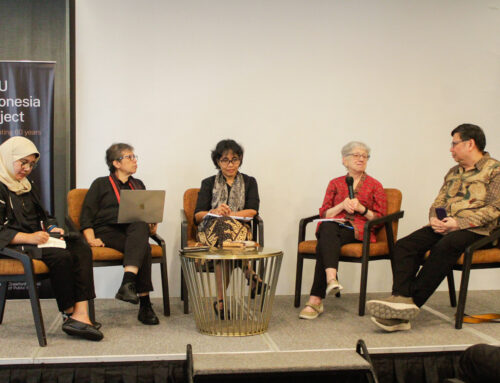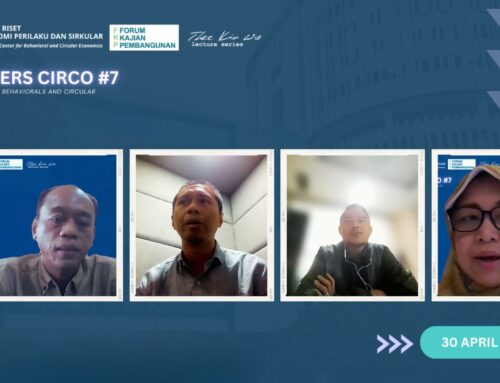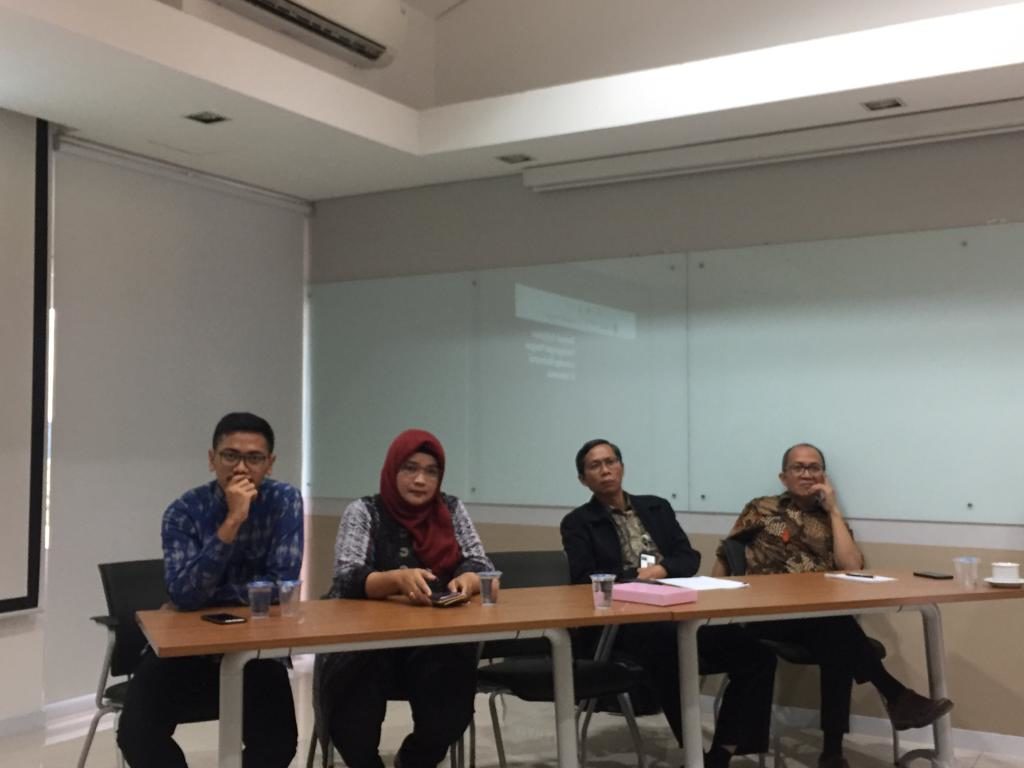 In recent years, the issue of stunting has been gaining public attention in Indonesia. To get a more holistic view on the matter, on Wednesday, 20 March 2019, Center for Indonesian Policy Studies (CIPS) hosted the first FKP of the month, which discusses the topic of nutrition from an economic and health perspective. There were 5 speakers: Arianto Patunru (ANU Indonesia Project), Assyifa Szami Ilman (CIPS), Kasan Muhri (Ministry of Trade) and Rini Suhartini (Ministry of Health) and Rina Agustina (Faculty of Medicine, Universitas Indonesia)
In recent years, the issue of stunting has been gaining public attention in Indonesia. To get a more holistic view on the matter, on Wednesday, 20 March 2019, Center for Indonesian Policy Studies (CIPS) hosted the first FKP of the month, which discusses the topic of nutrition from an economic and health perspective. There were 5 speakers: Arianto Patunru (ANU Indonesia Project), Assyifa Szami Ilman (CIPS), Kasan Muhri (Ministry of Trade) and Rini Suhartini (Ministry of Health) and Rina Agustina (Faculty of Medicine, Universitas Indonesia)
Arianto Patunru (ANU Indonesia Project) presented his research on the relationship between a country’s trade policy and nutrition status. In brief, Indonesia’s stance on free trade has been mixed, and laws often contradict one another. Using data from Indonesia’s socio-economic (Susenas), labor (Sakernas), and industrial surveys, Input-Output tables, as well as tariff rates history, Arianto Patunru found that a reduction of tariff in the output market is linked to a decrease in nutritional intake. The rationale behind this finding is that trade allows more access to cheaper food. Therefore, restricting trade through tariffs hinders people’s access to nutrition sources.
The next speaker, Assyifa Szami Ilman (CIPS) presented two studies. The first study is an analysis on the relationship between food prices and the probability of stunting in Indonesia. Combining data from Indonesian Family Life Survey (IFLS) and socio-economic survey (Susenas), Assyifa found that an increase in food prices is linked to a higher probability of stunting in Indonesia, by an average of 0.81% – 6.84%. In line with Arianto’s presentation, Assyifa asserted the importance of reducing trade barriers to improve nutritional access in Indonesia. Next, Assyifa presented preliminary findings from another study being conducted by CIPS –an experimental study on food prices and stunting in Sumba, East Nusa Tenggara. The main objective of this study is to assess the government’s non-cash food assistance policy on Sumbanese people’s consumption. Through a series of experiments and interviews, Assyifa found that the introduction of non-cash food assistance helps to smooth consumption in the case of increasing food prices.
Next, Kasan Muhri (Ministry of Trade) addressed the results of the studies and provided the perspective of the government, notably the Ministry of Trade. In general, he agrees that there is a significant indirect impact on trade openness on the nutritional status of a country. Regarding this issue, Kasan raised the important role the government plays as an intermediary between the global market and people in Indonesia by monitoring prices and improving access to food. Moreover, he explained that there are political aspects to trade policy which complicate policy-making in Indonesia.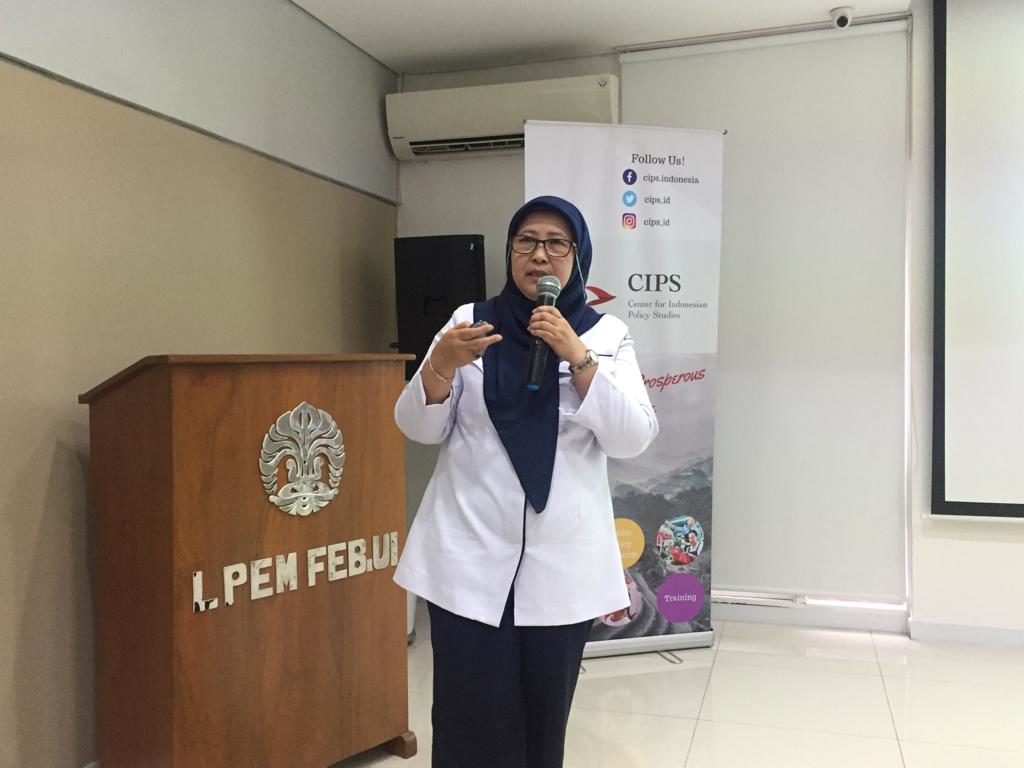 Rini Suhartini (Ministry of Health) discussed the issue of stunting from a public health perspective. The Ministry of Health has been advocating on the issue of stunting for a long time, yet it has only gained attention in recent years. In the past, the Ministry had imposed regulations to reduce sugar and fat intake, yet other ministries objected to the regulation as they considered the policy to be disruptive to the economy. The Ministry also often undertake public education on the importance of healthy food. However, the public can only consume food that are available and affordable for them in the market. Therefore, the Ministry of Health needs the cooperation of other ministries to ensure that affordable sources of nutrition are available to the public.
Rini Suhartini (Ministry of Health) discussed the issue of stunting from a public health perspective. The Ministry of Health has been advocating on the issue of stunting for a long time, yet it has only gained attention in recent years. In the past, the Ministry had imposed regulations to reduce sugar and fat intake, yet other ministries objected to the regulation as they considered the policy to be disruptive to the economy. The Ministry also often undertake public education on the importance of healthy food. However, the public can only consume food that are available and affordable for them in the market. Therefore, the Ministry of Health needs the cooperation of other ministries to ensure that affordable sources of nutrition are available to the public.
Lastly, Rina Agustina (Faculty of Medicine, Universitas Indonesia) provided insights on stunting from a medical perspective. Aside from inadequate nutrition, Rina explained that infectious diseases could also cause stunting. Both of these factors happen early in life, specifically within the first 6 months. To address this problem, Rina asserted the importance of breast milk and supplementary food that includes animal proteins for children. However, Rina believes that Indonesia’s food system is currently dysfunctional, causing nutritious food to be unaffordable. Rina called for improvement in the agriculture sector, especially in the production of legumes, fish, and whole grains.
For the complete presentation and Q&A session, please refer to the video and materials provided.
